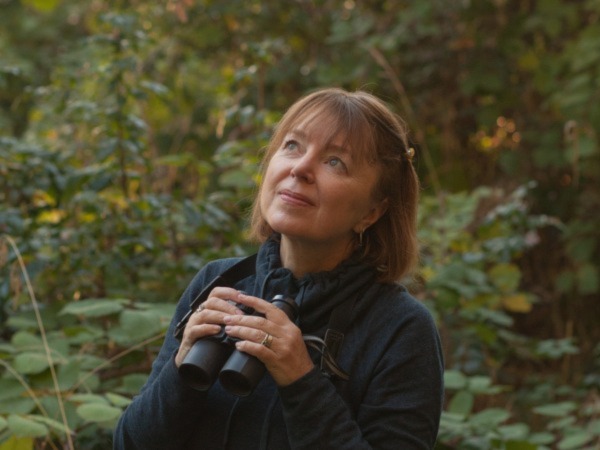
Last week, we featured the book “Rooted: Life at the Crossroads of Science, Nature, and Spirit,” by Lyanda Lynn Haupt. This week we share our conversation with the author.
A good portion of your book focuses on the benefit of forests. Is that your favorite environment?
It’s true that I do love forests, especially places where rivers are running among the trees. And I live close to the Salish Sea, so expanses of saltwater have always influenced me. To be honest, though, I am always surprised by how deeply I connect with “deserty” places — Joshua Tree, Santa Fe, Taos, and environs. I live in a place with so much rain — I am moved by how life flourishes upon such dramatically different lands, and I am endlessly inspired by the stones, the wide skies, the variety of trees.
Do you find it difficult to balance living in a city with your love of nature?
I am grateful to have a private backyard that is planted with native trees and flowers that invite a great variety of birdlife. (I actually pitch a tent in the backyard and sleep there about half the year, so I can see the night sky through the screen roof and hear the night visitors — raccoons, opossums, moles tunneling right under my ear, and sometimes owls). I’m also a short walk to a large, forested park with trails through the trees and along the sea. I know I’m lucky in that way. And of course, as I emphasize in my books, we are always surrounded by nature, even in much more urban places than I live — sky, weather, plant life, celestial bodies, birds, dragonflies, coyotes. I could go on forever. Just a small shift in attention — walking across the threshold of our homes and into the world with a field trip mentality, an attitude of exploration and natural adventure— will allow us to see things we’ve overlooked every day and deepen our connection to the more-than-human world.
What would you recommend as the best starting point for someone who wants to become more rooted?
Find a place outdoors and visit that place every day in stillness for at least 10 minutes (30 is better, and an hour is fantastic!) through every season. The wilder, the better, but a garden, a park, even the base of a parking strip tree will serve. See what is present, what grows, what changes, what sounds you hear — human and beyond-human. Soon any birds in the area will come to know that you are not a “normal” human, but the one who is quiet, and instead of flying away or to a higher branch or further down the sidewalk, they will be their natural selves. Maybe at first, you will think there is nothing really going on at your chosen spot, but trust me — the more you return, the more you will see. This will take some time, but it is so worth it, providing a lesson that we are always, everywhere, connected to a wilder earth.
Photo credit: Tom Furtwangler
